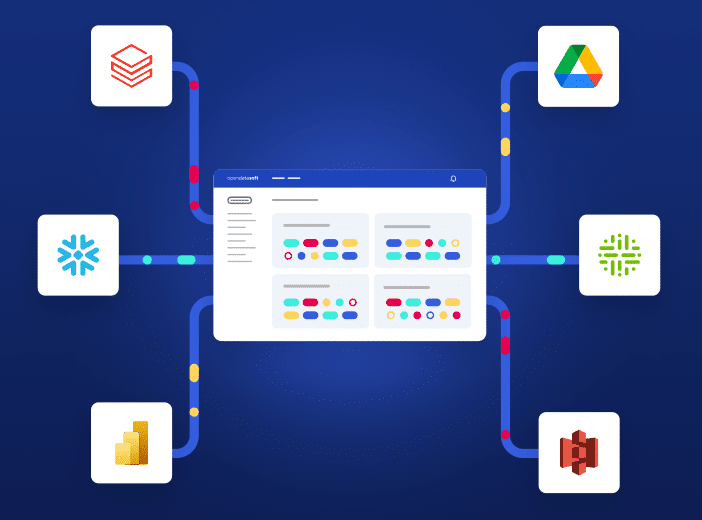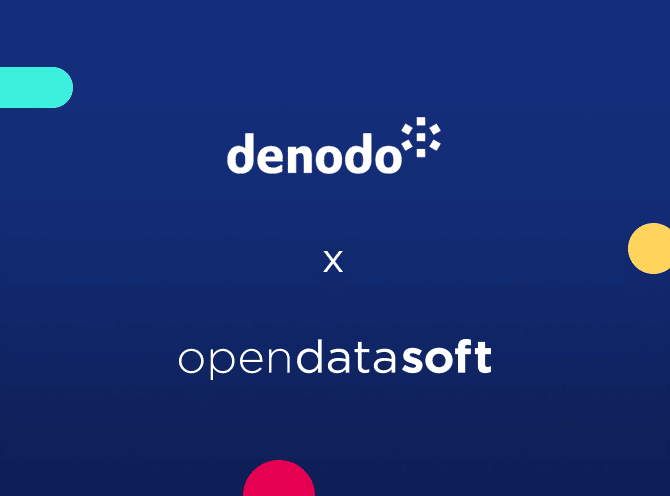What is a Data Exchange?
A data exchange enables the secure, controlled, self-service sharing of data assets, products, and services between different organizations, allowing potential data monetization.
Also known as ecosystem data portals, these centralized data spaces are essential to turning data into value. They drive closer collaboration while enabling potential new revenue streams. Data exchanges provide structure to external data sharing, allowing seamless data availability in multiple standardized formats, including raw data, APIs and visualizations, through a self-service interface, while ensuring privacy and interoperability.
Data exchanges can be between two organizations (peer-to-peer) or be open to specific, approved participants, who can both contribute and consume data, depending on their needs. Data can be shared with clients, partners, regulators, or other members of an industry ecosystem, either free of charge or as paid-for data services.
What does a Data Exchange contain?
Data exchange platforms require specific components and features to operate effectively:
- An intuitive user experience that encourages data usage by making discovery and access straightforward and easy to use
- The ability to standardize data into common formats such as CSV, XML, JSON to enable seamless exchange between organizations and users
- Robust authentication and security processes to provide access solely to relevant users, dependent on their roles and authorization levels
- Strong security and privacy to safeguard confidential information from unauthorized use
- Monitoring and audit features to understand how and where data is being used, and by whom
- Effective data discovery capabilities to ensure that users can quickly find and trust relevant data through comprehensive search functions
- Seamless connections to multiple data sources (such as business solutions, storage, data warehouses, cloud applications) to enable the sharing of data quickly and effectively
- Comprehensive data governance rules and clear, agreed data glossaries and metadata standards to build trust and confidence
- Scalability, ensuring that exchanges can process and simultaneously share potentially enormous volumes of data, to multiple organizations
- The ability to share data in multiple ways, such as in tabular formats, through visualizations and via APIs to meet the needs and technical skill levels of different audiences
What are the use cases of a Data Exchange?
Data exchanges break down silos between organizations, improving transparency and collaboration, and can be used in multiple ways:
- Healthcare – for securely sharing patient information between providers to enable better care and improved patient outcomes
- Financial services – sharing transactional data to increase risk management capabilities through a comprehensive view
- Public sector – sharing data between different central, state and local government entities to deliver better, more efficient, joined-up services to citizens
- Supply chain management – real-time data exchange to optimize inventory levels and increase efficiency
- Regulatory compliance – providing regulators with up-to-date information on activities to monitor compliance efficiently
- Sustainability reporting – collecting data on emissions from across the supply chain to monitor and meet sustainability goals, either for individual organizations or entire sectors
What are the benefits of a Data Exchange?
By automating the sharing of data and making it easily available between organizations, data exchanges deliver benefits to all parties:
- They increase the efficiency and speed of data sharing, boosting productivity and cutting costs by removing complexity from the process
- They enable greater collaboration by breaking down silos and allowing data interoperability, increasing innovation and strengthening partnerships
- They underpin better decision-making and analysis through access to more comprehensive, accurate data, driving better insights
- They enable better data governance, including through monitoring and reporting, protecting confidentiality and preventing unauthorized access to data
- They automate regulatory compliance, increasing efficiency while ensuring organizations comply with legislation such as the GDPR and CCPA
- They provide the framework to monetize data assets, providing it securely through self-service to existing and new customers

